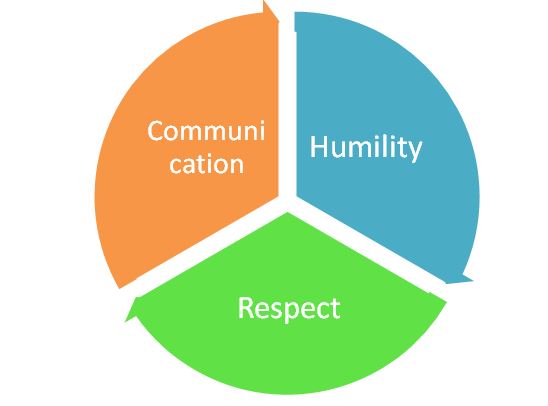When it comes to coaching, every great professional should have a guiding philosophy, which they are then going to emphasize on a day-to-day basis. My principles have helped me throughout my 35+ year long career as a professional basketball player and coach. I believe that apart from having certifications or even practical experience, it is crucial for a coach to guide the team in accordance with the established coaching postulates. My values in life and coaching are relatively the same and include respect, communication, and humility (Figure 1). Based on these, I form expectations for myself and my team. I prioritize open and honest communication with the staff and players as an expression of mutual respect. Moreover, I want my team to remain disciplined and have a good attitude, which is why I emphasize humility and encourage myself and others to admit their mistakes.

I have consulted multiple basketball teams internationally as an assistant coach. My unique experience with coaching around the world (U.S.A., Japan, South Korea, Germany) has taught me to take a long-term approach in coaching. Instead of emphasizing fast results, I always try to think ahead and work on establishing relationships with players and introducing professional standards, which would produce consistent results later on. One of my guiding principles is to always show the players how much I care about them and the team. This way, I ensure that they trust me and follow my advice as they start to realize that everything I do is in the best interest of the team.
My approach implies the prioritization of every player in a team. I consider each player an individual who need their own unique mix of approaches to reach their full potential. However, I always remain honest about the expectations I have of each player in terms of professionalism, punctuality, and personal accountability. A major part of my philosophy is the idea that in order to be good at coaching, it is important to recognize the responsibilities of players. This way, even if one has not been a professional player themselves, they can clearly define the role of each player, which would then help them set realistic expectations and be more empathetic, in general. I believe that apart from participating in the games and team activities or going to practice, an efficient player is able to assess their performance and make certain changes in order to become even better. Adjusting and adapting are both invaluable skills, which I hold to the highest regard in my coaching. Moreover, my philosophy emphasizes discipline and a good attitude, which I then expect from all the players.

All in all, the basis for my philosophy stands on 5 postulates, which include working hard, winning games, having a good attitude, making money, and having fun (Figure 2). At the same time, having previously been a player myself, I understand that hard work may seem meaningless unless you can taste the fruit of your labor, which is why winning and winning big is so important. In order to safeguard a positive atmosphere within a team, which can help players get through tough times, I consider it crucial for all the members of the coaching staff and the team itself to possess good attitudes. As for money, I notice that coaches often try to sweep the question of financial rewards under the rug. Nevertheless, I encourage my players to live by the quote: “Do not chase the money, and the money will chase you.” One of my favorite quotes is “Find a job you love and you will never have to work a day in your life.” Thus, I emphasize positivity and humor in my coaching philosophy. I believe that these principles have helped me to develop successful programs and turn inefficient programs into the ones that produce results and help the teams enter into the elite club of champions.